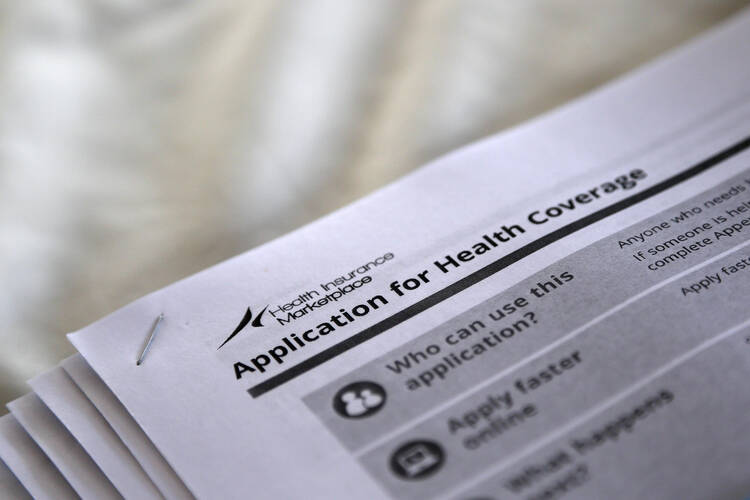As Gov. Matt Bevin prepares to remake Kentucky's Medicaid program, a new national survey shows what's at stake: gains in insurance coverage matched only by one other state.
Kentucky and Arkansas had the largest drops in the percentage of people without health insurance in the country, according to the Gallup-Healthways survey. In 2013, more than 20 percent of Kentuckians did not have health insurance. By the end of 2015, after the state expanded its Medicaid program and created a health-insurance exchange, that figure was down to 7.5 percent.
Nationally, the survey found nine states ahead of the pack in reducing the percentage of uninsured residents.
The nine—Massachusetts, Hawaii, Vermont, Rhode Island, Minnesota, Wisconsin, Iowa, Connecticut and North Dakota—had less than 7 percent of their adult residents uninsured last year. That compares with a national uninsured rate of 11.7 percent, according to the survey.
Before 2014, when the big coverage expansion began under the federal health care law, only Massachusetts was at or below 7 percent in any year. Massachusetts passed its own health overhaul in 2006 under former Republican Gov. Mitt Romney, and some of its major elements were later adopted by President Barack Obama.
Bevin, a Republican, has already given the order to dismantle kynect, Kentucky's state-based exchange. And he plans to repeal Kentucky's Medicaid expansion and replace it with something else that could mean fewer people would be eligible and the ones who stay eligible would have to pay a small premium. Bevin needs approval from the federal government to do that. If he does not get it, Bevin has said he would repeal the expansion entirely.
"To be top of this list would be an achievement if it didn't mean that one-third of Kentuckians are on government subsidies," Bevin spokeswoman Jessica Ditto said.
In Arkansas, Republican Gov. Asa Hutchinson is trying to put new limits on both eligibility and benefits, including requiring some people to pay a premium. Federal officials have not said whether they would approve his changes.
The survey shows states that expanded Medicaid and operated a state exchange outperformed other states in the number of people who have insurance. Seven of the top 10 states had expanded Medicaid and either operated a state exchange or had a state-federal partnership. Of the 10 states with the smallest declines, five did not expand Medicaid or operate the exchange. Four of those states did both, but they were already among the six lowest uninsured states in 2013, meaning they did not have much room for improvement.
"That should send a message to every public leader in Kentucky: Going backward for political reasons won't help our people," said former Democratic Gov. Steve Beshear, who both expanded Kentucky's Medicaid program and created kynect by executive order.
But Beshear did not have to pay for most of his actions. The federal government gave the state a $290 million grant to create kynect. And the federal government paid for 100 percent of the new Medicaid recipients for the first three years. Beginning in 2017, Kentucky will have to start paying for part of the new Medicaid enrollees—about $200 million by 2018. That does not include the money needed to shore up the multibillion-dollar deficits in Kentucky's public pension programs.
Beshear and others point to a Deloitte study that showed Kentucky's Medicaid expansion would pay for itself. But Bevin has rejected that study.
The Gallup-Healthways survey is closely watched by policy experts and politicians because it combines the depth of government-sponsored research with the quick turnaround of media polls. Pollsters interview 500 people a day, nearly every day of the year. One of the questions they have asked since 2008 is whether people have health insurance.
The Affordable Care Act offers subsidized private insurance for people who don't have access to job-based coverage, combined with a state option to expand Medicaid for low-income adults. "Obamacare," however, continues to divide Americans, with those who disapprove edging out supporters.
The Gallup-Healthways 2015 results were based on interviews with a random sample of 176,885 adults aged 18 and older, living in all 50 states and Washington, D.C. The margin of sampling error is plus or minus 1 to 2 percentage points for most states, but can be higher for states with small populations.
___
Alonso-Zaldivar reported from Washington.
Copyright 2016 The Associated Press. All rights reserved. This material may not be published, broadcast, rewritten or redistributed.







